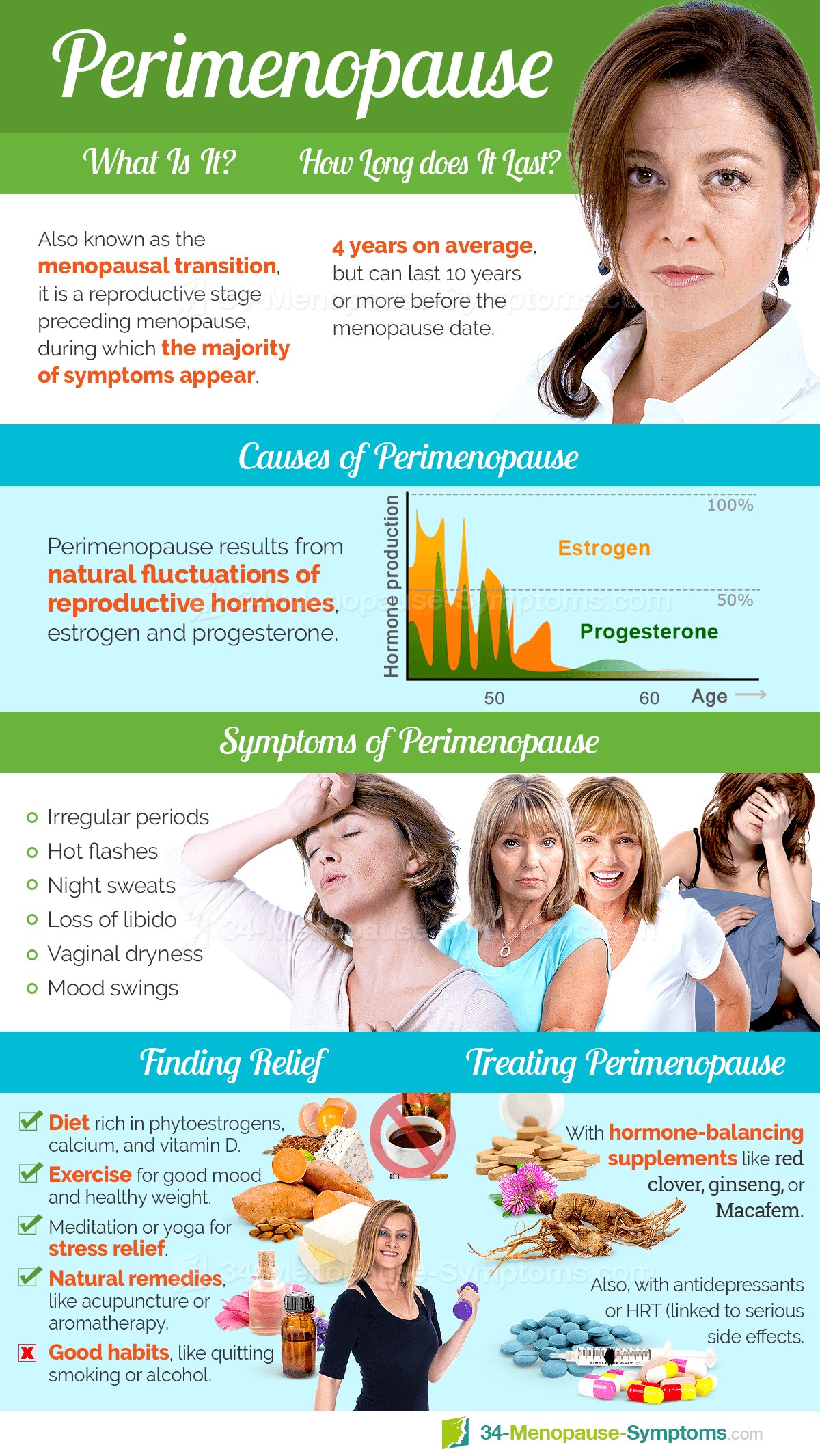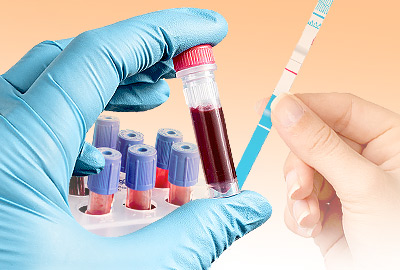Although perimenopause is clearly the most noticeable stage of the menopause process, most women fail to realize what perimenopause really is.
Perimenopause, as its own name suggest, is the time in women's lives near menopause. Symptoms such as hot flashes and mood swings appear, causing women to feel uncertain about their own bodies, as they go toward the end of their reproductive lives.
Perimenopause, the second menopausal stage, is not something to be dreaded. Armed with sufficient and accurate information, the storm of perimenopause can be weathered with grace and relative ease. The following information provides a comprehensive definition of perimenopause, the causes related to its onset, the symptoms reported by women in this stage, and treatments for the many discomforts of perimenopause.
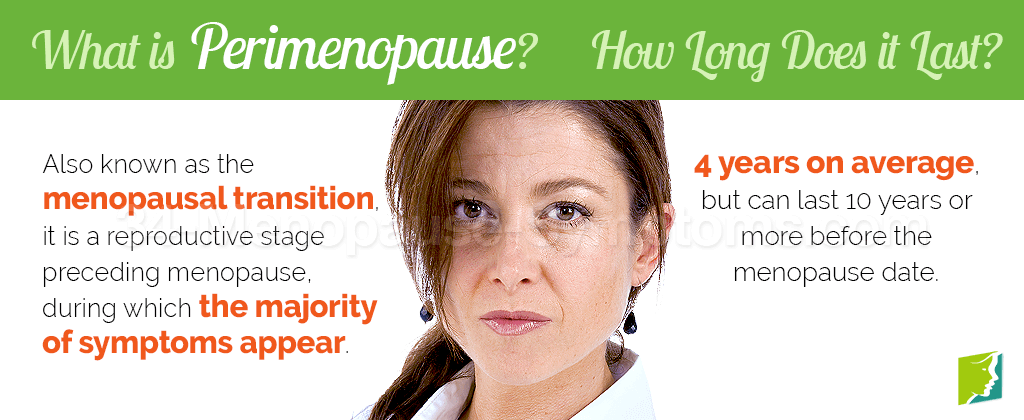
About Perimenopause
Perimenopause can be a somewhat uncomfortable and even frightening time for women who are unprepared for the changes that accompany it. It is the second stage of the menopause process, and it can be recognized as the stage that signals the start of the end of the reproductive years.
Although all women are different, they usually enter perimenopause in their forties. During this time, the female body prepares for the total cessation of reproductive functions, causing myriad changes and feelings.
Common Perimenopause Tests
- Follicle stimulating hormone (FSH) test. Testing FSH levels can help determine if a woman is perimenopausal, as FSH levels typically increase when women approach menopause.
- Estrogen test. Also called an estradiol test, this is performed multiple times over a period of several days to measure fluctuation.
- Thyroid stimulating hormone (TSH) test. This test checks for problems with the thyroid.
To learn more about the different characteristics of perimenopause, click on about perimenopause or continue reading to learn about the different causes of perimenopause.
Perimenopause Causes
At the most fundamental level, perimenopause is a natural process characterized by a decrease in hormone levels with age. These hormonal changes can be explained by:
Internal causes
Hormonal fluctuations result in the visible signs and symptoms of perimenopause. This involves the natural hormonal fluctuations that accompany aging and eventually lead to the end of the menstrual cycle.
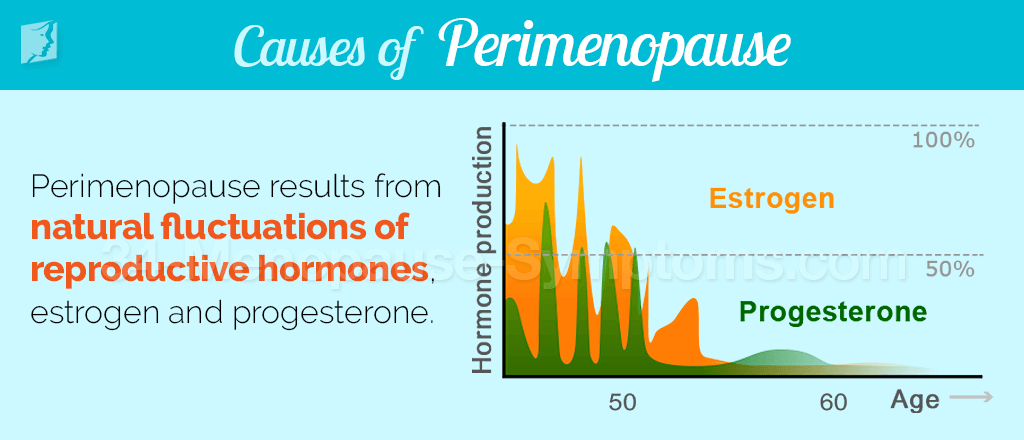
External causes
While all women experience natural hormonal changes, these changes can be accelerated or amplified by outside causes. These include poor lifestyle habits - such as heavy smoking - extreme stress, hysterectomy, and radiation or chemotherapy.
For an extensive explanation of the hormonal and external causes of perimenopause, click on causes of perimenopause; otherwise, read on to discover the many symptoms of perimenopause.
Perimenopause Symptoms
Probably the most recognizable feature of perimenopause symptoms, is the way women's bodies respond to the erratic hormonal changes taking place. Perimenopause symptoms often begin at a mild level of intensity and may come and go unpredictably for months or even years. Some of the most common perimenopause symptoms are:
- Fatigue
- Loss of libido
- Weight gain
- Depression
- Hot flashes
- Night sweats
- Mood swings
- Vaginal dryness
- Irritability
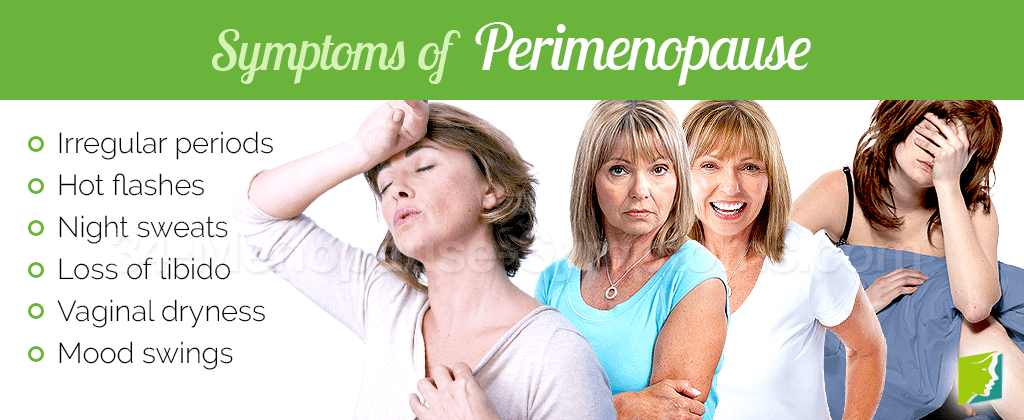
Although the symptoms mentioned above are the most common,there is a whole array of perimenopause symptoms. To get a better understanding of perimenopause symptoms, click on perimenopause symptoms.
Many women might discover that their perimenopause symptoms are significantly disrupting their lives. These women might readily seek out treatments for perimenopause. Below, please find introductory information about perimenopause treatments.
Perimenopause Treatments
Although changing lifestyle habits is an effective approach, other women may need more powerful treatment options and seek out alternative medicine, such as safe and effective herbal supplements. Still other women find that they want even more powerful relief from symptoms and seek out prescription medication, which can be effective, but may not be totally safe. Because there are risks and benefits associated with some perimenopause treatments, women should consult a physician before committing to any course of action.
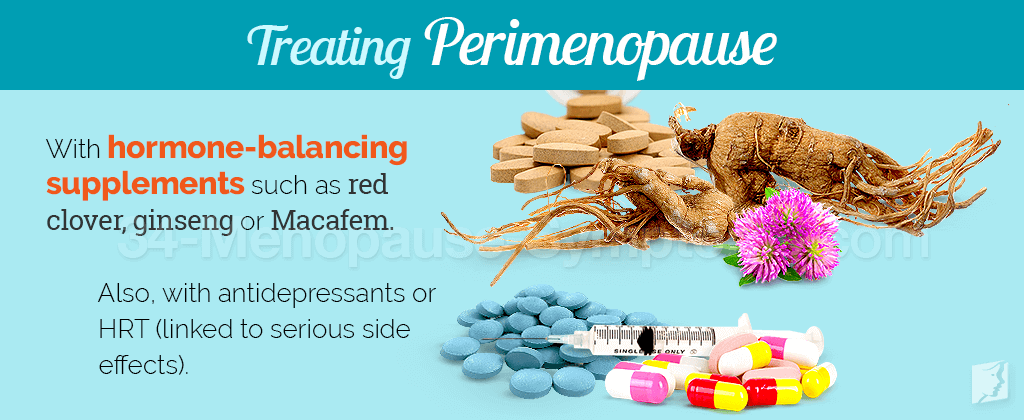
While each woman is unique and needs to do research to find the most effective way to treat her perimenopause symptoms, many women discover that a combination of non-invasive lifestyle changes and alternative medicine are their ticket to symptom-free days. Please click on the following link to learn more about perimenopause treatments.
Sources
- BMJ Group. "Menopause: What is it?" Patient Leaflet. 2007.
- Hopkins, Virginia. Lee, John R. M.D. What Your Doctor May Not Tell You About Menopause. New York: Warner Books Inc., 1996.
- Love, Susan M.D. Menopause and Hormone Book. New York: Three Rivers Press, 2003.
- Martin, Raquel. The Estrogen Alternative. Rochester, VT: Healing Arts Press, 2000.

